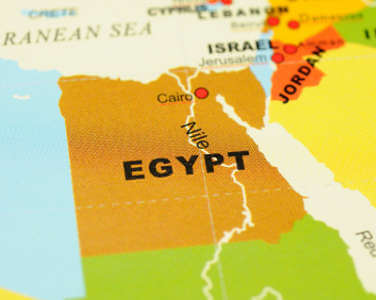
Abdel Kamel, 61, was arrested on Sept. 23 in downtown Cairo for handing out copies of a Christian leaflet. As they arrested him, police told Kamel it was “unlawful” to hand out religious information on public roads. When Kamel countered that Muslims commonly hand out Islamic literature, police told him it was “more unlawful” for Christians. Kamel also didn’t have his identification card with him.
Nabil Ghobreyal, an attorney who worked to gain Kamel’s release, said there is no law in Egypt forbidding the distribution of religious material.
Police handcuffed Kamel, put him into a police car and seized his leaflets. Authorities then took him to a police station for interrogation. While in custody, Kamel said, he remained in handcuffs for hours, was thrown to the ground, spit upon and threatened with violence.
Kamel said he wasn’t tortured, but when asked to describe his treatment, he wept uncontrollably.
The lay preacher said he was proclaiming repentance and forgiveness in Christ because he views it as a service to others.
“I love my people,” he said. “I love Egypt, and I feel my service is directed toward the people I love and the country I love.”
Authorities held Kamel for four days without charge and did not allow him to see family members or a lawyer. He said officers did allow him to receive food, medicine and written messages.
Attorney Ghobreyal said that Kamel was an “honest and innocent man” who was arrested illegally. When Ghobreyal approached an assistant attorney general to ask for Kamel’s release, the prosecutor asked him to wait for three days, which Ghobreyal immediately challenged. Ghobreyal said that in free speech cases involving religion, state attorneys are often “loathe” to keep police from breaking the law, or at best “complacent” about letting them make baseless arrests.
Sometime close to midnight on Kamel’s second day in jail, police continued their investigation by going through his apartment and removing all written materials in his house. Describing his apartment in Al-Nakhl as being “ransacked,” he said it was what most angered him about his arrest.
“[The gospel] is all about a message of love, a message of peace,” he said. “There is nothing illegal about it, and it is annoying that they know that, but in spite of that they came there in this manner. It is very bad.”
Kamel said there is a double standard in Egypt when it comes to freedom of religion. He said Muslims in Egypt are allowed to promote Islam using “books, pamphlets and loudspeakers,” but Christians are often forbidden from sharing their faith.
“Why, when we are doing it, are we not even allowed to put our view across?” he said. “Why aren’t we treated the same?”
Eventually Kamel was transferred to a jail in Al Minya, where he was interrogated a second time for two and a half hours. Investigators told him that the pamphlets he distributed did not “insult Islam,” a serious charge commonly on the law books of Islamic-majority countries.
Police made it clear to Kamel that they did not want to release him, Ghobreyal said. They released him grudgingly because they were worried about reports in the media and from human rights groups. He was released without charge.
“The pressure in the media and the announcements made on the Internet helped me a lot,” Ghobreyal said.
Kamel, who describes himself as being a committed Christian for 30 years, said he does not plan to file a complaint against the police but will rather “leave it to God to reward them accordingly.”
His 29-year-old daughter, Mariam Kamel, said that even though she is afraid that police will continue to harass her family, she is thankful to God that police released her father.
“I’ve seen God’s hand in every crisis we’ve had over the past 30 years of his work preaching the gospel,” she said.
She said she was sure her father would return to preaching. Still shaken, her father said he was not so sure.
“Who can carry on in a situation like this?” Kamel said.












































